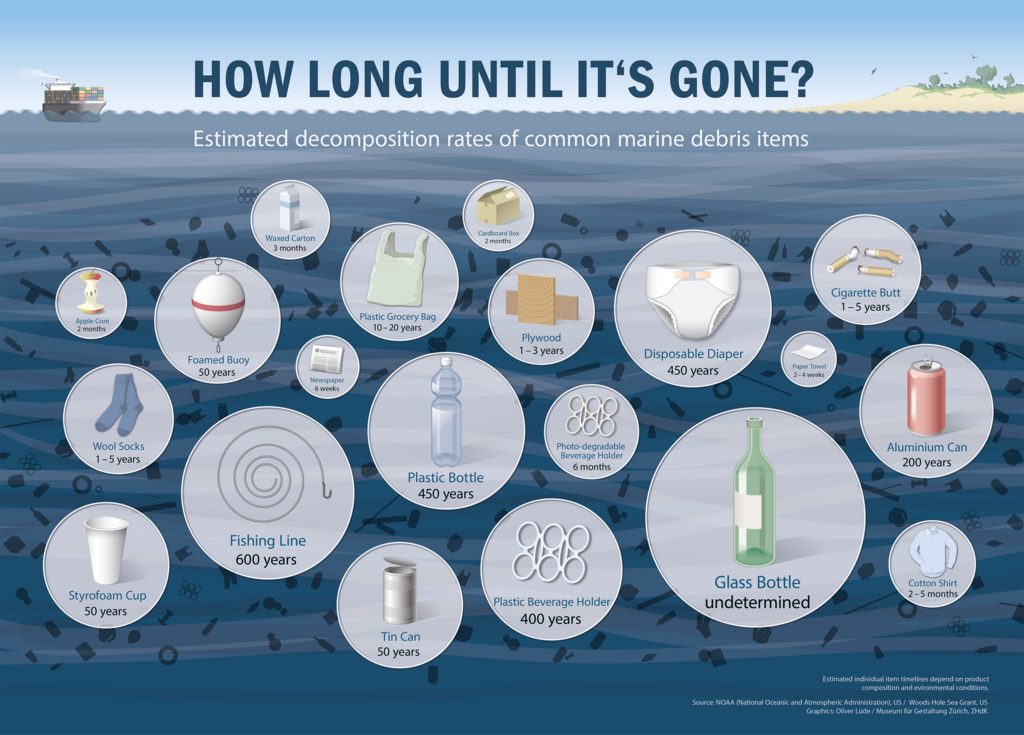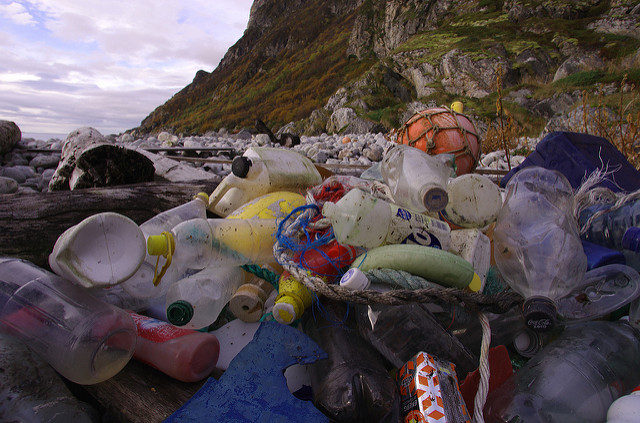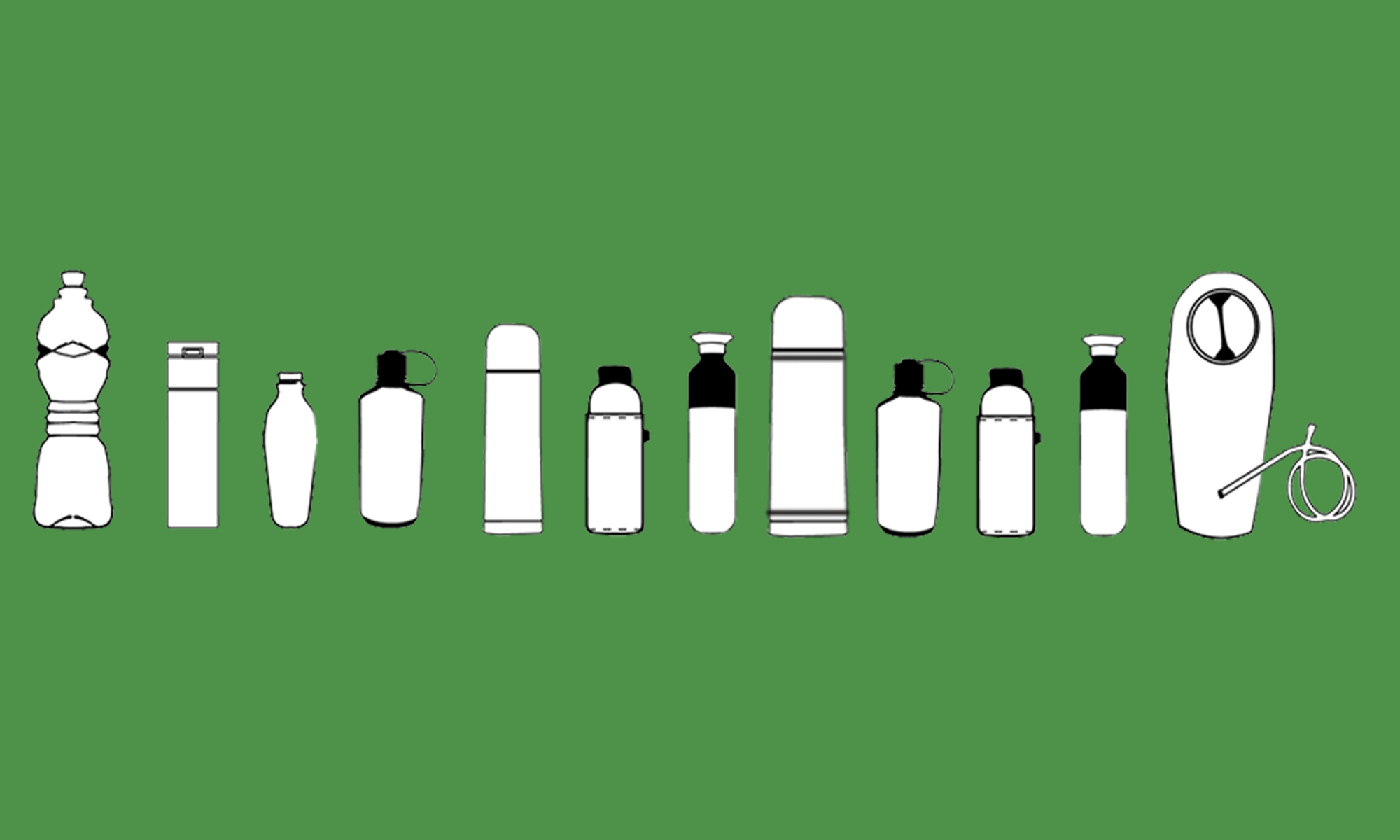We humans nowadays live up to around 80 – 90 years. This is peanuts for plastic bottles. They need around 450 years to decompose. 450 years? That means an empty bottle disposed today could still be alive until the year 2468.

PET FOR DUMMIES
Water bottles are made from PET (polyethylene terephthalate), which is a thermoplastic polymer. PET belongs to the polyester family. Parts made from PET can be recognised by resin code number 1. The material can be found in different states: white (semi-crystalline), transparent (amorphous), or coloured (using additives). PET is very suitable for storing and conserving of beverages. Furthermore it is easy to process, widely available and cheap. It is possible to recycle PET, either by chemical or mechanical recycling.
So far, so good. What about the difficulties?
PET is a non-degradable polymer. It consists of relatively large molecules that decay very slowly. That’s why plastic bottles can survive up to 450 years. Presently, the majority of empty PET bottles is not recycled. One reason is that bottles are not properly disposed. For example, because consumers don’t properly seperate plastics from general waste. Secondly, the infrastructure for recycling is still limited. As a result most bottles end up in landfill or are being incinerated. Valuable material is wasted. Incineration also causes air pollution and contributes to acid rain.

YOUR DEED FOR THE DAY
Your mum may have told you not to pick up things from the street, but… Next time you see a roaming PET bottle, pick it up and dispose it in a proper place. So it won’t celebrate its 450th birthday in our nature. Believe me, it becomes quite entertaining and rewarding when you do so!
